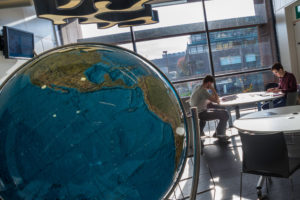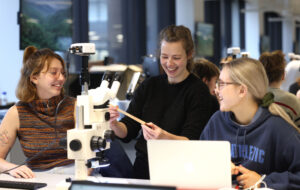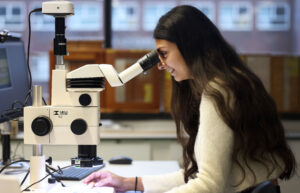How you'll learn
Planning education has an important vocational focus and in Liverpool we consider a real-world connection to be extremely important. Our students gain a broad understanding of planning, from the ways in which towns and cities have evolved and are being reshaped to meet the challenges of the 21st century to the effects of planning on the environment and planning’s role in urban regeneration.
To do this we have designed varied programmes of study with a range of teaching styles. You will ‘learn by doing’ through place-based projects and field classes as well as be introduced to real-life examples from around the world.
Our courses also include specialised training in geographic information systems, mapping, and urban design. Together these approaches ensure that you gain valuable transferable skills whilst studying with us.
Please note: A number of the School’s degree programmes involve laboratory and fieldwork. The fieldwork is carried out in various locations, ranging from inner city to coastal and mountainous environments. We consider applications from disabled students on the same basis as all other students, and reasonable adjustments will be considered to address barriers to access.
How you're assessed
Assessments are designed around developing skills and styles of communication that will be relevant to future employers. So, in addition to exams and essays, you will also undertake assessments that include computer-based exercises, oral presentations, policy briefs, poster presentations, field projects, research reports, design work, group work, seminar presentations and papers. Students complete a compulsory dissertation or project module in the final year on a topic of your choice. This is your opportunity to develop skills as an independent academic researcher, supported on a one-to-one basis by an expert in the field.
Liverpool Hallmarks
We have a distinctive approach to education, the Liverpool Curriculum Framework, which focuses on research-connected teaching, active learning, and authentic assessment to ensure our students graduate as digitally fluent and confident global citizens.
The Liverpool Curriculum framework sets out our distinctive approach to education. Our teaching staff support our students to develop academic knowledge, skills, and understanding alongside our graduate attributes:
- Digital fluency
- Confidence
- Global citizenship
Our curriculum is characterised by the three Liverpool Hallmarks:
- Research-connected teaching
- Active learning
- Authentic assessment
All this is underpinned by our core value of inclusivity and commitment to providing a curriculum that is accessible to all students.







